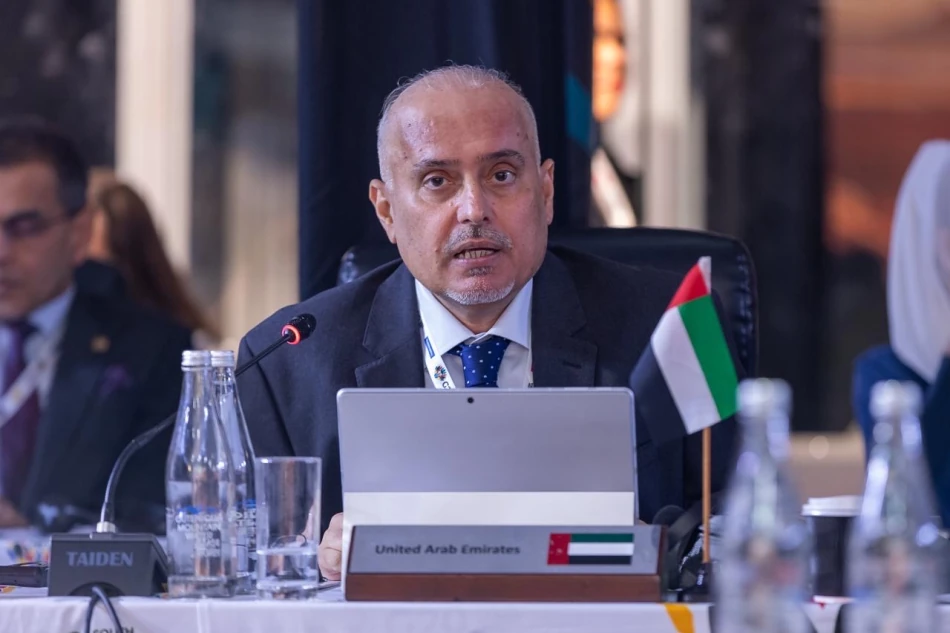
Soaring Emirati Workforce: 325% Growth Since Launch of 'Nafes' Initiative
UAE Showcases Economic Transformation Model at G20, Highlighting Youth-Driven Growth Strategy
The United Arab Emirates positioned itself as a regional leader in sustainable economic development at the G20 Labor and Employment Ministers' meeting in South Africa, presenting compelling statistics that underscore its successful youth empowerment and gender equality initiatives. With youth comprising half of its workforce and women holding 66% of government positions, the UAE's model offers valuable insights for economies seeking to balance rapid modernization with inclusive growth.
Youth as Economic Catalysts: The Numbers Tell the Story
Dr. Abdul Rahman Al Awar, UAE's Minister of Human Resources and Emiratisation, revealed striking workforce statistics during the George, South Africa summit. The UAE labor market has experienced 12% growth in workforce participation and 17% growth in company formation, while citizen workforce participation has surged by an extraordinary 325% over three years since launching the "Nafes" program.
This dramatic increase in local workforce participation addresses a longstanding challenge in Gulf economies: reducing dependence on expatriate labor while creating meaningful employment for nationals. The UAE's approach differs markedly from Saudi Arabia's more aggressive Saudization policies, opting instead for market-driven incentives rather than quotas.
Future-Economy Skills Investment
The UAE's strategic focus on artificial intelligence, digital services, healthcare, and education sectors reflects lessons learned from Singapore's economic transformation playbook. By aligning educational outcomes with market demands through expanded technical and vocational training, the country is positioning itself ahead of regional competitors who remain heavily dependent on traditional energy sectors.
Three flagship initiatives demonstrate this commitment: the National Youth Agenda 2031, the Manufacturers Program, and the 5000 Digital Talents initiative. These programs represent a coordinated effort to build local capacity in emerging technologies while reducing skills gaps that have historically required imported expertise.
Gender Equality: Beyond Symbolic Representation
The UAE's gender equality achievements extend beyond headline-grabbing statistics. Women now constitute 66% of government workforce participants, with over 30% occupying leadership positions. More significantly, private sector female participation has grown by 21%, with skilled positions accounting for 46% of women's private sector employment.
These figures place the UAE ahead of many developed economies in government sector gender representation, though private sector participation still lags behind countries like Sweden or Canada. The legal framework prohibiting all forms of workplace gender discrimination, including promotion and training opportunities, provides structural support for continued progress.
Regional Leadership Position
International recognition validates the UAE's approach. Ranking first in the Middle East and North Africa on the UN Development Programme's Gender Equality Index, and scoring 82.5 out of 100 on the World Bank's "Women, Business and Law 2024" report, the country has established itself as a regional benchmark.
This positioning carries economic implications beyond social progress. Companies increasingly factor gender equality metrics into investment decisions, and the UAE's strong performance enhances its attractiveness for international business and talent acquisition.
Market Implications and Competitive Positioning
For investors and multinational corporations, the UAE's workforce development strategy signals several important trends. The emphasis on digital skills and AI capabilities aligns with global technology sector growth, while the focus on local talent development suggests reduced long-term labor costs and improved regulatory stability.
The 325% increase in citizen workforce participation particularly matters for sectors like banking, telecommunications, and professional services, where Emiratisation requirements intersect with skills availability. Companies operating in the UAE can expect a more skilled local talent pool, potentially reducing recruitment costs and compliance challenges.
Compared to regional competitors, the UAE's balanced approach to economic diversification and social development creates a more sustainable growth model. While Qatar focuses heavily on World Cup legacy projects and Saudi Arabia pursues ambitious Vision 2030 megaprojects, the UAE's emphasis on human capital development may prove more resilient during economic downturns.
The G20 presentation ultimately showcases a country that has successfully navigated the transition from resource-dependent economy to knowledge-based hub, offering a replicable model for other developing nations seeking sustainable growth through youth empowerment and gender inclusion.
Most Viewed News

 Sara Khaled
Sara Khaled






